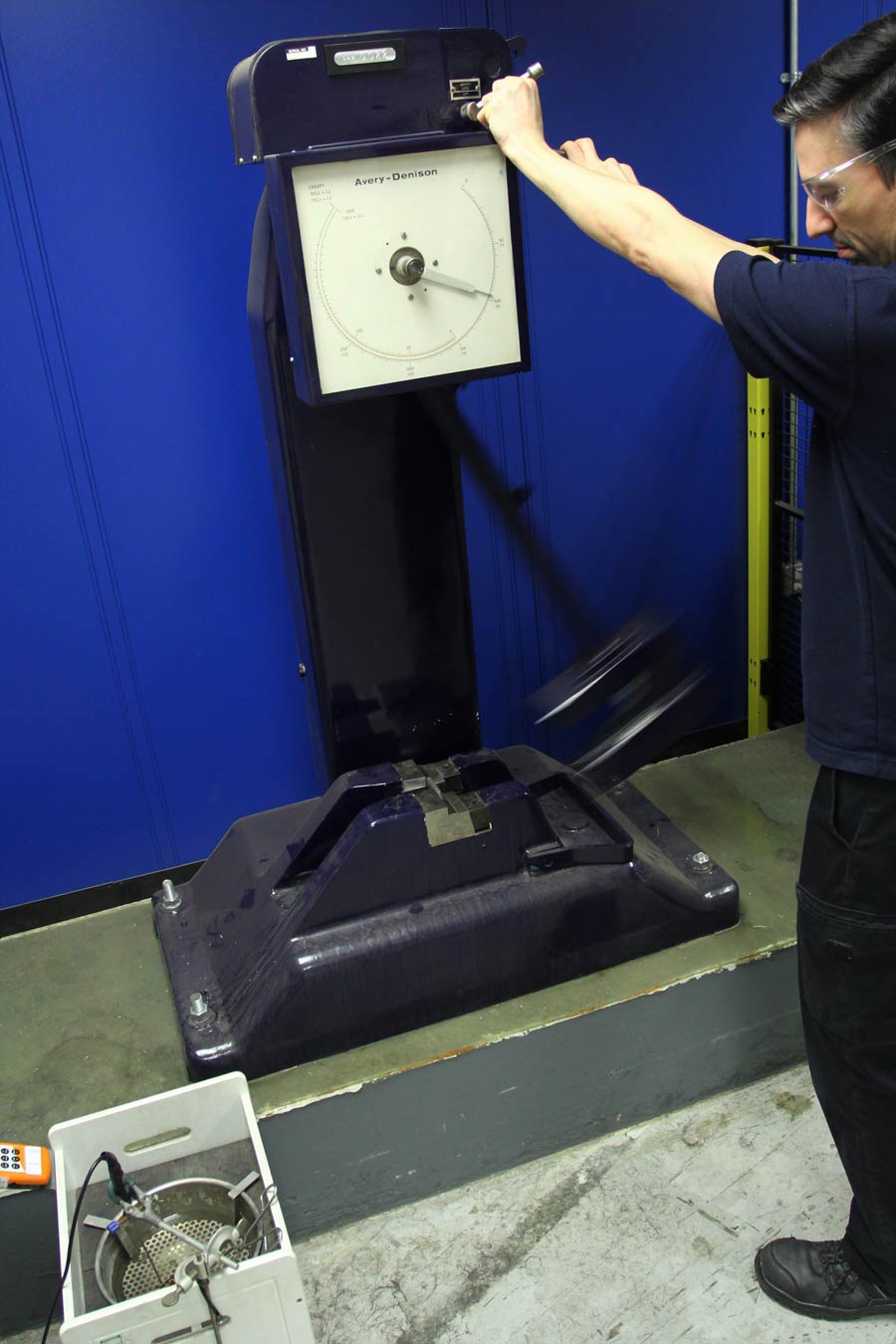Charpy impact testing
Charpy Impact testing determines the amount of energy absorbed by a material subjected to impact
Charpy Impact Testing (sometimes referred to as the Charpy V-Notch test, or simply as toughness testing) determines the amount of energy absorbed by a material subjected to impact which then gives a measure of a given material’s toughness. The greater the resistance to impact, the tougher a material is considered to be.
All samples sent to our laboratory are undergo the necessary preparatory machining, conducted by skilled machinists at our dedicated and modern workshop.
Working strictly to British and ASTM Standards, and to exact tolerances required for compliance with UKAS accreditation, the machined samples are then placed in one of our impact testing machines for evaluation of the material’s toughness by measuring the energy (in joules) required to break the sample.
In some circumstances, a sample may be required to be tested at sub-zero temperatures. Our laboratory is therefore equipped to carry out Charpy Impact testing at temperatures ranging from ambient down to -196°C. Since many ferrous materials undergo a ductile-to-brittle transformation as the temperature decreases, this is particularly relevant and of interest to steel stockholders and also offshore applications.
Charpy Impact testing is also carried out for the assessment of ‘Through-thickness’, Parent metal, Weld material and Heat Affected Zone (HAZ) areas as required.

